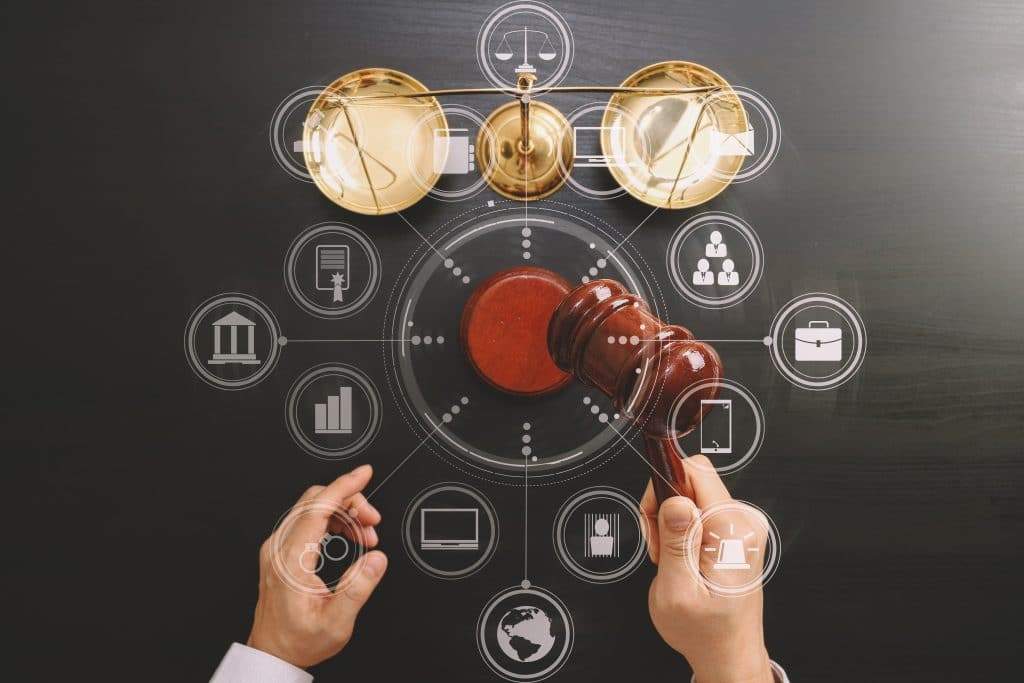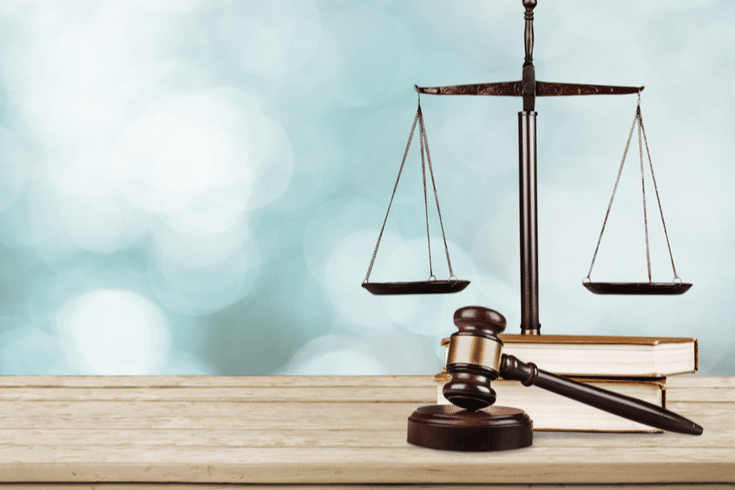What are the Cases and Reasons for a Lawyer to Decline a Case? An Explanation by a Lawyer

Have you ever found yourself in a predicament and thought about consulting a lawyer?
However, it’s important to understand that lawyers are not obligated to accept every case they are consulted on, and there may be instances where they decline to take on your case.
So, under what circumstances and for what reasons might a lawyer refuse a case? In this article, we will explain various scenarios in which a lawyer might decline a case, as well as what clients should be aware of when seeking for a legal counsel.
The Attorney and the “Duty to Accept”

First and foremost, attorneys are under no obligation to accept a case when requested. They have the right to choose the work they take on.
In the case of physicians, Article 19, Paragraph 1 of the Japanese Medical Practitioners Act states, “A physician engaged in medical practice shall not refuse a request for consultation or treatment unless there is a valid reason.” Similarly, administrative scriveners are obligated to respond to requests under Article 11 of the Japanese Administrative Scriveners Act, unless there is a valid reason to refuse.
However, neither the Japanese Attorney Act nor the Basic Rules of Attorney Duties (Attorney Ethics) stipulate that “an attorney must not refuse a request.”
Why are attorneys allowed to refuse cases? To put it simply, it’s because this approach is considered to be the most beneficial for the client.
Let’s take a look at the circumstances under which an attorney might refuse a case.
Cases and Reasons Why Lawyers May Decline a Case

Resolving legal issues can be both time-consuming and costly. Therefore, accepting requests indiscriminately can potentially lead clients to cause distress.
Even if a lawyer declines to take on a case, it does not mean they are rejecting the client. If they believe it would be difficult to serve the client’s interests, they may decline the case for the benefit of the client. In the following, we will explain the cases in which a lawyer may decline a case.
Case 1: Outside the Scope of Practice
It is common and considered to be a good practice for a lawyer to decline a case if it falls outside their area of expertise or if they have limited experience in the requested legal field. Each lawyer and law firm has their own areas of law and domains they specialize in. It is safe to assume that there are few lawyers or law firms that can handle all types of legal issues.
They may decline requests in areas where they have little experience, as there may be a possibility of a more appropriate resolution.
For example, Monolith Law Office is a law firm specializing in IT and Internet business. On our website, if you click on “Services”, a list of “Services” will open, including “General Corporate”, “IT”, “Cross-border”, and “Internet”. By clicking on the button listed below for each, you can find out more about the detailed services we provide.
Reference: Services of Monolith Law Office
Just like the above, every law firm’s website has a guide to their practice areas. By looking at this, you can see whether they handle the content you want to consult about.
For example, if you consult with Monolith Law Office, which specializes in IT and Internet business, about divorce or traffic accidents, there is a high possibility that they can only provide general advice. As there are many lawyers and law firms with rich experience in divorce and traffic accidents, we recommend consulting with lawyers or law firms that list these fields as their practice areas.
On the other hand, the fields of “General Corporate”, “IT”, “Cross-border”, and “Internet” all require advanced and specialized IT knowledge. There may be cases where it is difficult to find an appropriate solution outside of lawyers or law firms that handle a large number of cases in this field. As there are not many law firms that understand both IT and business, there may be cases where they decline because it is outside their scope of practice.
Case 2: Risk of Financial Collapse
It seems that lawyers often decline to take on cases where there is a high risk of financial collapse. If the amount of money expected to be recovered in a case is less than the legal fees, there is no financial benefit for the client. In such cases, the lawyer may refuse the request.
However, there are clients who are capable of this. Some clients are more interested in imposing social sanctions on the offender, so they don’t mind if there is no financial gain. In the case of corporations, they may be willing to incur expenses in the case considering their future prospects. There are also clients who have strong beliefs and are determined to fight to the end, regardless of the cost it might take.
If you are told that there is a risk of financial collapse, please consult with your lawyer. It may be a good idea to ask for a detailed explanation of the prospects in advance, and if you still want to proceed, you can make a request.
Case 3: No Chance of Winning
There is a significant difference in legal knowledge and perspective on issues between a lawyer and a client. Given that the consultation content is a legal issue, a lawyer judges whether it can be resolved from a legal standpoint. Therefore, even if the client finds it difficult, the lawyer may find the case easy to be resolved.
And vise versa. Even if the client thinks the case is simple, it may be legally impossible to handle. In this case, the lawyer may have no choice but to decline the request.
If a lawyer accepts a case and proceeds to mediation or litigation with the opposing party, the case is likely to be declined if it is deemed unwinnable. If a lawsuit is initiated knowing from the start that they will lose, it may become a frivolous lawsuit. However, even if the defendant (the party being sued) is expected to lose, the lawyer may accept the case with the aim of minimizing damages through a more favorable “settlement” than the plaintiff’s claim.
The outlook may vary depending on the lawyer’s skills, experience, and personality, so please consult with a lawyer. When accepting a case, a retainer fee is generally incurred, so be careful of lawyers who accept unwinnable cases for the purpose of the retainer fee.
Also, if a case that can only be handled by a lawyer under the law is handled by another professional or operator without a lawyer’s qualification, such as a judicial scrivener, it becomes an illegal non-lawyer act. For further detail, please refer to the following article.
Preference: Where Does Unauthorized Practice of Law Begin?
Case 4: Conflict of Interest

A lawyer accepting a case from a client who has conflicting interests with another client is referred to as a “conflict of interest”. This is prohibited under Article 25 of the Japanese Attorney Act and the Basic Rules for Attorney Duties. Lawyers must not accept cases from multiple parties with conflicting interests. A typical example is a case where a lawyer represents both parties.
Article 25 of the Japanese Attorney Act
An attorney must not take the cases specified below; provided, however, that this does not apply for the cases specified in items (iii) and (ix), if the client of a case undertaken by the attorney gives their consent.
1. Cases in which their client provided support to the other party after consultations, or accepted the request of the other party.
2. Cases in which their client accepted the consultation requested by the other party and it is obvious that the degree and form of the consultation are determined based on a relationship of mutual trust.
3. Other cases requested by the opposing party of than those already undertaken by the attorney.
(Omitted below)
For example, a lawyer who is or has been involved in a lawsuit for Mr. A cannot accept a lawsuit that Mr. B has brought against Mr. A. The lawyer knows Mr. A’s secrets, and if these are used to initiate a lawsuit, it would be a problem for Mr. A.
The range of actions considered to be conflicts of interest is actually broader and more complex, and lawyers carefully consider whether they can accept a case based on this point.
This prohibition of conflicts of interest also applies to lawyers belonging to the same law firm (Article 57 of the Basic Rules for Attorney Duties). For example, if a lawyer at Monolith Law Office has already consulted with Mr. A, another lawyer in the firm cannot accept a consultation from Mr. B, who is in dispute with Mr. A, because it would be a conflict of interest. In this case, even receiving legal consultation is prohibited, and the lawyer cannot listen to the consultation.
This is related to the duty of confidentiality within the law firm where the lawyer belongs, which we explained in another article on this site.
Related article: What is a lawyer’s duty of confidentiality? Explaining the scope of exceptions and penalties
Case 5: Confidential Relationship with the Client
If a lawyer feels that a client is not trustworthy after speaking with them, they will not accept the case. Litigation is a joint effort between the client and the lawyer. If there is mutual distrust, a good outcome cannot be expected.
It is important not to lie to your lawyer during consultations in order to build a confidential relationship. When consulting with a lawyer, even if it is inconvenient for you, do not hide anything and speak honestly.
When consulting with a lawyer, you are likely to be dealing with some kind of a problem. However, it is important to remain calm and honest. Even if there are things that are difficult to say or embarrassing, do not hide the facts or lie, but open your heart and consult.
The contract with a lawyer is based on a confidential relationship in which both parties should act so as not to betray the trust of the other party. This relationship is very important and unique to the profession of “lawyer”.
Judgment and Confidential Relationship in Case Handling
For example, when a lawyer receives a request from an individual who is being sued for damages for some reason, the lawyer and the client will be forced to make judgments, such as whether to accept a settlement under certain conditions, during the negotiation process.
- “We should settle under these conditions.”
- “Even if there is a risk of being sued, we should not settle under these conditions.”
Such judgments are directly linked to the interests of the client. If there is no trust relationship between the client and the lawyer at such times, the client may suspect that
- “Is this lawyer telling me to settle because they want to end the case quickly?”
- “Is this lawyer telling me to refuse to settle because they will earn more if it goes to court?”
If such doubts arise, it will be impossible to make appropriate judgments. This is unfortunate for both the client and the lawyer.
Decisions such as “whether to settle or not” that lawyers and clients are forced to make during the dispute process often do not have a “correct answer” at that time.
For example, even in the above example, if the lawyer decides that “even if we refuse to settle under these conditions, there is still a high probability that the other party will not sue”, there is always a possibility that this judgment will be wrong in the end, i.e., if we refuse to settle, we may be sued immediately.
Even considering such possibilities, can you still trust the lawyer’s judgment? From the lawyer’s perspective, can they convey their outlook and judgment to the client as a professional, even with such possibilities? These are all based on the good relationship they have built.
Both the Client and the Lawyer Have the Right to Terminate the Contract
The contract concluded between the client and the lawyer is a “mandate contract”, so even after the contract is concluded, both the client and the lawyer have the right to terminate the contract.
Article 651 of the Civil Code
1. A mandate may be cancelled by either party at any time.
2. If the following cases, a party that has cancelled a mandate pursuant of the proceeding paragraph must compensate for damage suffered by the other party; provided, however, that this does not apply if there was a compelling reason for the condition.
As a lawyer, there is no benefit in terminating the contract midway. Therefore, there is basically no contract termination without reason, but if the confidential relationship with the client is lost, if the resolution policy is too far apart, or if the client becomes unresponsive, the lawyer may terminate the contract with the client.
This can only be damaging to the client, so if it is judged that it is difficult to build or maintain a trust relationship, there are cases where the lawyer decides that it is better not to accept the request, considering the ultimate benefit to the client.
The client and the lawyer want to build a good relationship as they work together to solve the problem.
The Importance of Consulting Multiple Lawyers

Since lawyers have different levels of experience and interpretations of legal knowledge, their proposed solutions can also vary. Relying solely on the opinion of one lawyer may lead you in a biased direction. Therefore, consulting with multiple lawyers and hearing their opinions can sometimes help you grasp matters more objectively.
Moreover, since lawyers are also human, the ‘compatibility’ factor is crucial. In a situation where you are already burdened with troubles and under significant mental stress, it is important to choose a lawyer with whom you can honestly discuss your feelings and facts without hesitation, and express your requests without reservation.
Summary: There are various cases where a lawyer may decline a case

As mentioned above, there are various reasons why a lawyer may decline a case. However, most of the time, this is a result of the lawyer prioritizing the client’s best interests from their perspective.
Also, as detailed in another article on our site, “What is a lawyer’s duty of confidentiality? Explaining the scope of exceptions and penalties”, lawyers have a duty of confidentiality. This duty applies not only while they are practicing as lawyers, but also for the rest of their lives, prohibiting them from disclosing or using any secrets they learned about their clients in the course of their duties.
Therefore, there is little chance of personal information or secrets being leaked. Of course, even in free consultations, the duty of confidentiality applies to lawyers.
If you find yourself in trouble and unable to resolve a legal issue on your own, it would be a good idea to consult with a lawyer, a legal expert, taking into account these points.
Category: General Corporate
Tag: General CorporateIPO





















